“I used to hate consuming greens and millets,” admits 10-year-old Jahnavi Nanda. “As soon as, my mum gave me ragi for dinner, and I used to be not very completely satisfied to eat it.” Equally, eight-year-old Kabir remembers his aversion to something remotely wholesome. “I at all times thought wholesome meals tasted bland and boring,” he says with a shy grin. “I used to be much more taken with munching on crisps and candies throughout my meals.”
For youngsters rising up in an age of sugar-laden cereals and vibrant packaging, the concept of consuming for wellness fairly than style feels overseas. However a change is taking root in Gujarat, as extra individuals start to rediscover the worth of historic grains. Slowly, kids are starting to vary, not simply in what they select to eat, however in how they give thought to meals and the world round them.
On the centre of this transformation is a small cafe. It doesn’t look extraordinary from the surface, however inside, it’s serving to to form new habits, kinder decisions, and a greater understanding of the place our meals comes from.
Commercial
The engineer who returned to her roots
That place is ‘Cafe Aarambh’, which implies ‘starting’ in Hindi. It was based by 27-year-old Nishtha Chauhan, an electronics and communications engineer who left a promising profession in aerospace to return to the earth, fairly actually. As a substitute of the traditional company path, Nishtha selected to until the soil, grind millets and compost kitchen scraps.
Her journey isn’t a spontaneous detour. Raised in a modest Gujarati family, she grew up surrounded by the knowledge of her grandfather, a millet practitioner who firmly believed within the goodness of historic grains like ragi (finger millet), jowar (sorghum), bajra (pearl millet), and little millet. Mealtimes at residence had been easy and healthful.
She had grown up accustomed to seeing all of the kitchen’s moist waste rigorously composted. “On the time, I didn’t assume a lot of it,” she tells The Higher India. “However as soon as I grew to become an grownup and appeared round me, I started to understand simply how deeply these habits had been ingrained in me, and the way vital they are surely.”
After graduating from Lalbhai Dalpatbhai School of Engineering, Nishtha joined Azista Aerospace, the place she labored on satellite tv for pc payloads in collaboration with the Indian Area Analysis Organisation (ISRO). It was an thrilling work which was intellectually demanding and high-profile. However amid the sterile labs and lengthy hours, she felt more and more disconnected.
“I at all times knew I wished to start out one thing of my very own within the meals sector. However I didn’t need it to be simply one other cafe serving pizzas or quick meals. The market is already stuffed with that. I wished to create one thing that will not solely nourish individuals but additionally give again to the surroundings and assist our native farmers. It needed to be rooted in objective and never simply revenue,” she explains.
Then the COVID-19 waves hit, which introduced a pause to her common routine and gave her an opportunity to rethink every thing. As she watched the world buckle underneath the burden of illness, life-style issues, and local weather nervousness, she couldn’t shake the sensation that meals lay on the centre of all of it. She started researching vitamin, agroecology, and India’s uncared for meals heritage.
Commercial
Her analysis quickly led her to give attention to millets and organically grown greens, all tied to the concept of a zero-waste life-style. “The extra I learn, the extra I realised how highly effective these grains are, not only for our well being however for the planet too,” she explains. “Millets require far much less water and pesticides than standard crops like rice and wheat. They’re resilient, nutritious, and related to our heritage.”
This understanding birthed a need to convey these components collectively in a considerate approach.
Cooking with a conscience
She left her full-time engineering job in early 2021 to focus fully on her analysis and imaginative and prescient. “It was formidable to step away from the safety of a gradual profession, however I knew I wanted to dedicate myself absolutely if I wished to create one thing impactful,” she says.
The next months went into experimentation and studying. The entrepreneur imagined a spot the place individuals may rediscover millets and conventional grains not as old school staples however as thrilling, scrumptious, and sustainable meals choices. “I wished an area that will encourage individuals to rethink their decisions, get pleasure from wholesome meals that tastes nice, and perceive the story behind each dish,” she displays.
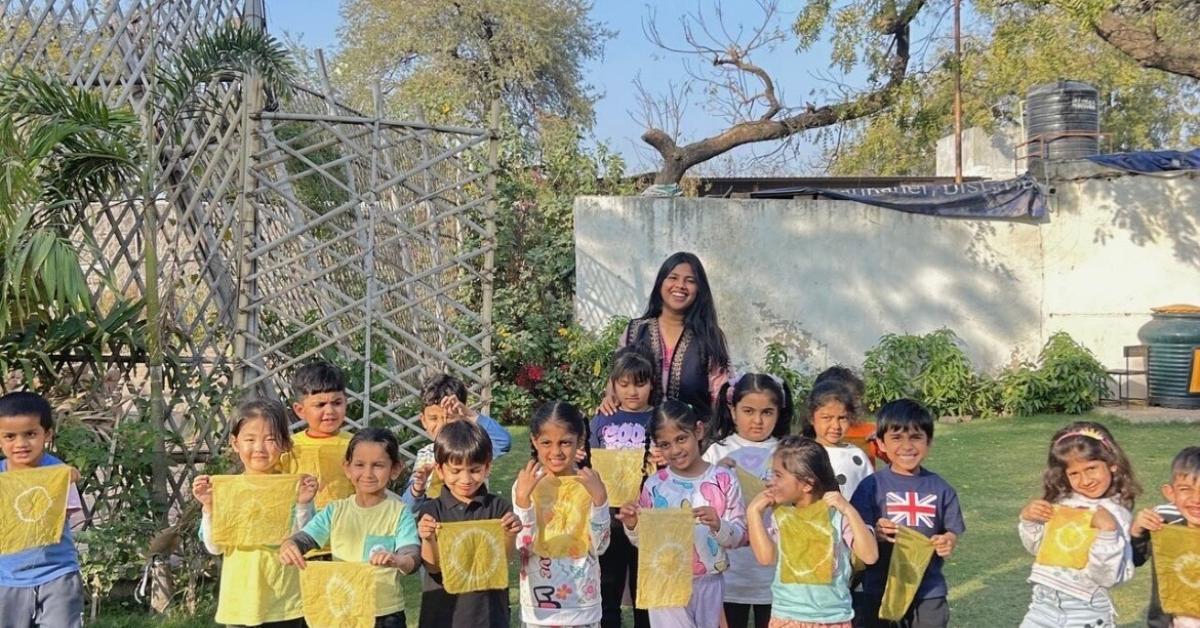
In December 2021, she opened Cafe Aarambh within the leafy premises of the Centre for Atmosphere Schooling (CEE) in Ahmedabad’s Thaltej space. Modest in scale however formidable in philosophy, the cafe runs on a dedication to sustainable sourcing, zero waste, and a return to conventional and healthful consuming.
It’s rigorously designed seasonal menu options 15 to twenty millet-based dishes that rotate based mostly on seasonal availability, reminiscent of smooth ragi dosas, pearl bhel, millet momos, and a preferred tackle the basic vada pav, served in freshly baked ragi buns.
Commercial
The meals are offered with the identical thoughtfulness that goes into their preparation. Every meal gives the consolation of a home-cooked expertise because the meals are served in glassware, fully avoiding plastic or any disposable litter.
On uncommon events, when single-use containers are wanted, reminiscent of throughout takeaways or when meals is served at exterior occasions, the cafe opts for biodegradable alternate options. Plates and bowls constituted of areca leaves or bagasse, each absolutely compostable, assure that comfort by no means comes on the expense of the surroundings.
“We want to maintain the menu small,” explains Nishtha. “Whenever you stroll into most cafes, you see pages and pages of choices. However right here, we give attention to dishes which might be nourishing and related to native traditions. It additionally means we keep away from over-ordering elements or losing what we cook dinner.”
Zero waste and most affect
This intention carries via into the kitchen, the place meals is ready every morning in restricted portions. Somewhat than guessing giant numbers, the staff rigorously estimates how a lot will probably be wanted, based mostly on earlier expertise and the season’s demand. If a selected dish runs out earlier than the day ends, it’s faraway from the menu, and no additional batches are ready.
The method is to chop down on wastage and to create a way of anticipation and appreciation among the many cafe’s regulars. Individuals come to the cafe not simply to eat, however to be a part of a system that values high quality over amount, and freshness over comfort. Every resolution, from portion sizes to how leftovers are dealt with, displays a bigger ethic of duty. The leftover vegetable peels and moist waste are changed into compost, feeding the small however spirited kitchen backyard.
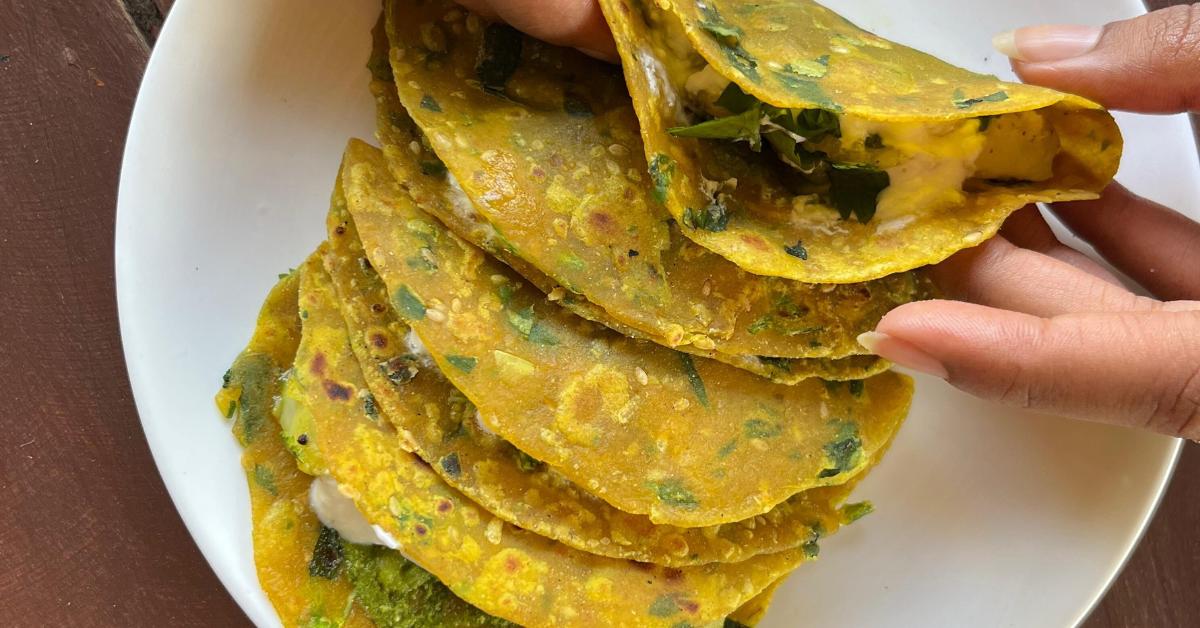
The founder has additionally reimagined consolation with the surroundings in thoughts. As a substitute of air conditioners, which devour heavy vitality and hurt the surroundings, the cafe makes use of water-cooling programs and mild misting followers to maintain the house naturally cool, even throughout Ahmedabad’s hotter months.
Commercial
“We wished the cafe to really feel like residence,” explains the founder. “Air con didn’t align with our values, so we selected easier and greener alternate options which might be appropriate.”
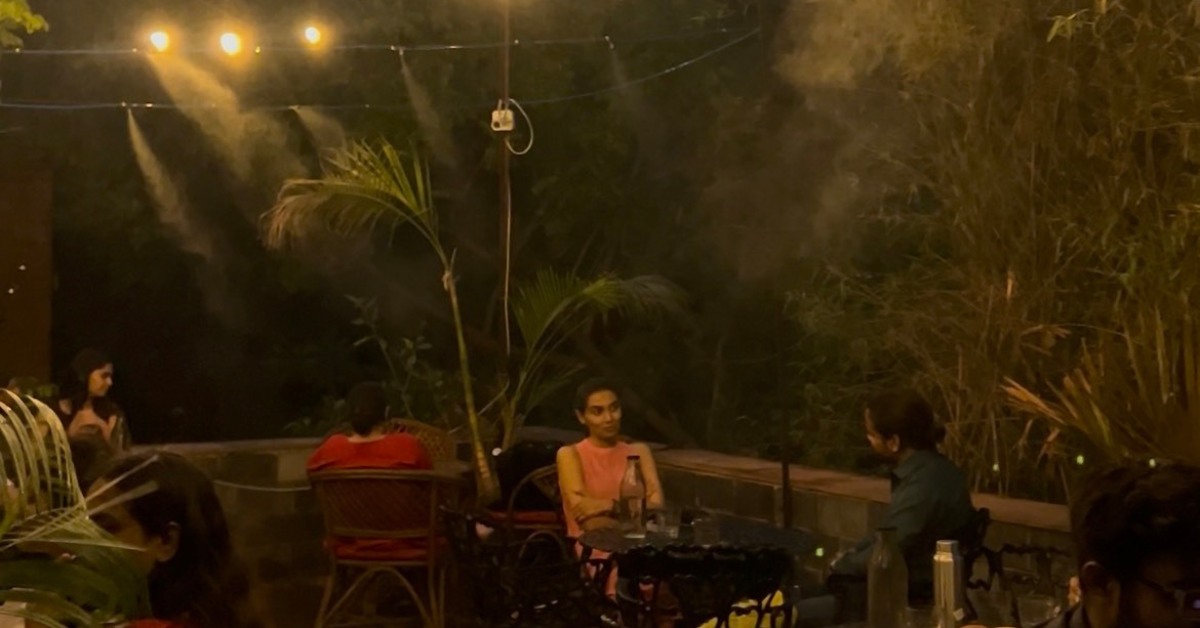
The cafe additionally avoids disposable tissues. As a substitute, there’s a handwashing station with a handwash and reusable material towels. “It’s what we do at residence,” Nishtha explains. “You wash your palms and use a towel. That’s precisely what we wished to keep up right here.”
Coaching younger minds to deal with the Earth
The primary issue that units Cafe Aarambh aside, nevertheless, isn’t just its meals, however its objective. From the outset, the entrepreneur envisioned it as a studying house, particularly for youngsters. Partnering with faculties reminiscent of GEMS Genesis Worldwide College, Adani Worldwide, and Anand Niketan, it launched a sequence of immersive eco-workshops aimed toward kids aged 5 to eleven. Over the previous two years, greater than 2,000 younger college students have taken half in what can solely be described as a rewilding of their senses.
Throughout the workshops, kids arrive as they’re, curious, giggly, typically detached to the idea of ‘wholesome consuming.’ They start by visiting the cafe’s personal kitchen backyard, the place they’re taught to the touch the soil, determine native herbs like tulsi (holy basil) and brahmi, and harvest spinach, edible flowers, or carrots.
They then step into the kitchen, washing contemporary greens and observing the workers as they chop and put together the elements. Guided by the staff, they assemble their very own salads and millet-based snacks, gaining hands-on expertise. They even get the prospect to work with native fruits and herbs, utilizing strategies like cold-press juicing to create contemporary drinks. In addition they participate in sound therapeutic and aromatherapy periods earlier than sitting right down to eat mindfully.
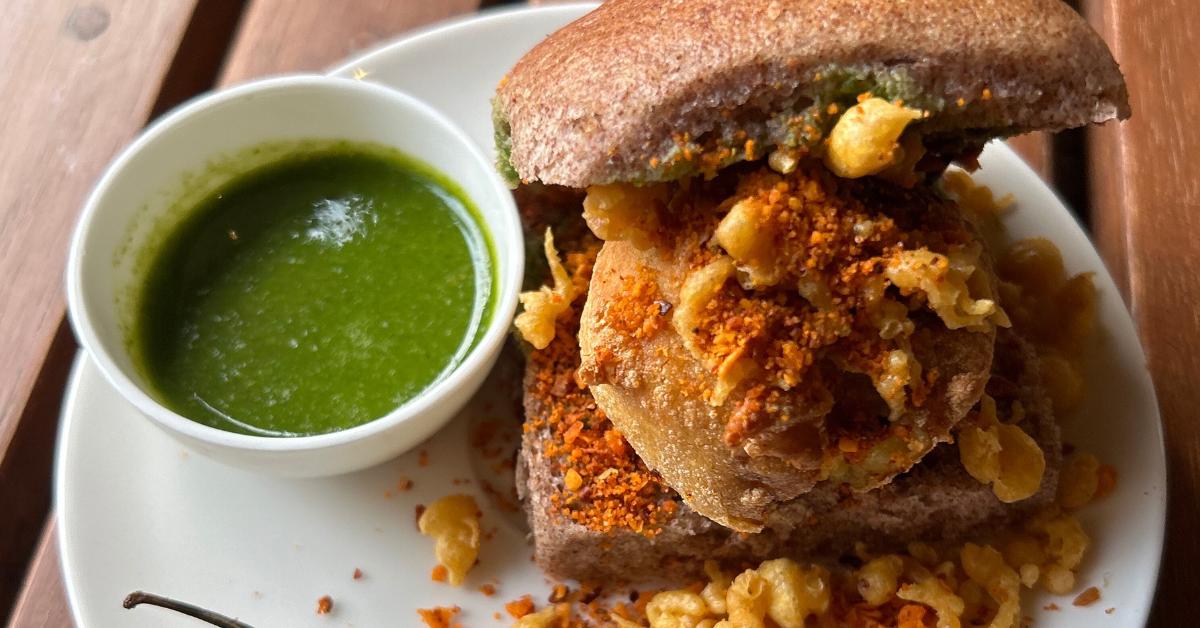
The results of these workshops is value noting. “Kids are available in scrunching their faces at ragi and greens, they usually go away asking their mother and father for millet khichdi at residence,” says the founding father of the cafe. Lecturers report long-term behavioural modifications in college students who attended the workshops; some began residence composting, others started studying meals labels earlier than buying snacks.
Commercial
Gradual small steps in the direction of a wholesome life-style
Jahnavi shares that the workshop fully modified the way in which she thinks about meals and the surroundings. “I learnt that millets are tremendous wholesome and wish a lot much less water to develop, so they’re good for the Earth too,” she says enthusiastically. She appreciates the information and the environment of the cafe. “What I like most is the heat, love and care with which I used to be handled throughout the session. Everybody tried to assist me out at any time when I confronted an issue,” she provides.
Because the workshop, she says, “I realised how vital it’s to have completely different, wholesome meals choices, and that nutrient-rich meals can really style good.”
“After we eat native meals like millets and keep away from losing something, we save water, assist our farmers, and scale back the quantity of waste we create. I additionally learnt that we will develop some greens proper on our balcony, which implies we will get pleasure from contemporary and natural meals as a substitute of relying on produce full of chemical substances,” she explains.
Kabir, who was launched to the workshop by his father, goes on to share how the vegetable backyard grew to become his favorite half. “I like seeing all of the completely different crops and selecting greens myself,” says the eight-year-old.
“It’s enjoyable to see how meals grows. I’ve by no means carried out that earlier than, however I wish to use the knowledge I picked up right here and implement it at residence,” he shares. The workshop additionally bought him considering extra in regards to the decisions he makes when consuming. “Now, I attempt to search for wholesome choices as a substitute of unhealthy snacks like chips and candies,” he says.
Each kids get pleasure from actions that join them on to the earth, whether or not it’s plucking greens, exploring crops, or making their very own contemporary juice. Locals, households, and passers-by typically step into the cafe anticipating a fast, wholesome meal and go away with questions on sourcing, cooking, and sustainability. Workers members are educated not simply to cook dinner and clear, however to have interaction with guests, answering questions and inspiring small life-style modifications.
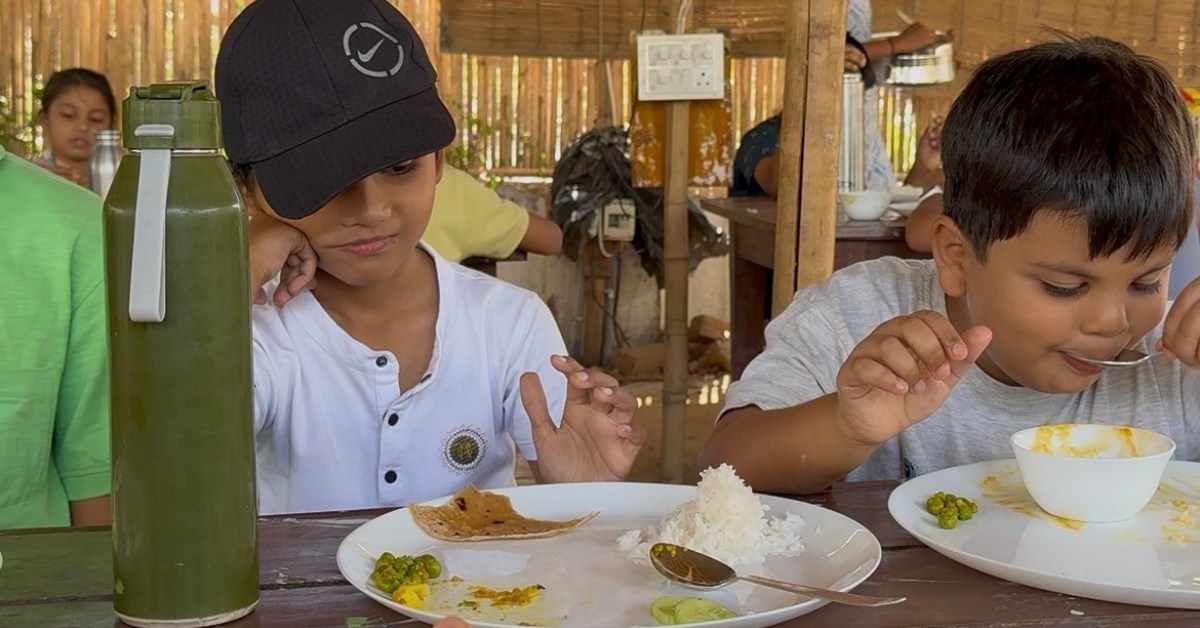
And the environmental affect is tangible. In just below 4 years, Aarambh has prevented roughly 1.7 tonnes of plastic waste from coming into landfills by eliminating single-use plastics. Alongside this, the cafe saved 28.3 tonnes of carbon dioxide emissions by avoiding using air con and lowered an additional 17.3 tonnes of CO2 by sourcing provides domestically inside 1,000 kilometres.
In complete, these efforts quantity to a discount of 47.3 tonnes of plastic waste and carbon emissions, equal to planting over 2,300 timber or taking greater than 10 automobiles off the highway for a whole yr.
From Earth to desk, and again once more
Cafe Aarambh was began utilizing the founder’s financial savings, with none exterior funding or buyers. It has grown right into a financially sustainable enterprise, now producing roughly Rs 12 lakh in month-to-month income throughout its two shops.
The primary cafe was arrange in Thaltej, throughout the campus of the Centre for Atmosphere Schooling (CEE). Constructing on the success of their first outlet, it has now expanded to a second location at Sola Bhagwat, located throughout the premises of the Bhagwat Vidyapeeth Mandir.

On this cafe, nestled amongst neem timber and buzzing bees, an enormous change is going on, and it doesn’t depend on Instagram tendencies or celeb endorsements, however on belief, style, and custom. Kids like Jahnavi and Kabir are its torchbearers. They’re rising up not simply conscious of local weather change and wellness, however geared up to behave.
“I attempt to make my very own wholesome lunch by including veggies and fruits,” Kabir beams. “I don’t throw something away. I even recommendation my pals to observe the identical to allow them to be wholesome too.”
That will not sound like a grand declaration, however for Nishtha, it’s every thing. “Meals is our most intimate relationship with the earth,” she says. “If we will train kids to honour it, we will change the world.”
All images courtesy Nishtha Chauhan

